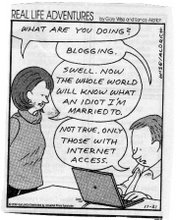ALEC's voter photo id law, A man's gotta do what a man's gotta do -- Shane

The Missouri House will debate Shane Schoeller's Photo ID proposal (HB1104) soon. Here's what Missourians need to know about
photo id enabling legislation
PART OF A NATIONAL EFFORT BY REGRESSIVE POLITICIANS TO SKEW ELECTIONS. Politicians pushing these laws never acknowledge their real purpose, which is to turn away from the polls people who are more likely to vote Democratic, particularly the young, the poor, the elderly and minorities.
NO CASES OF VOTER IMPERSONATION FRAUD HAVE BEEN DOCUMENTED IN MISSOURI. Every national study conducted has found that allegations of such fraud are not supported by empirical evidence. Voter fraud is a serious crime, punishable by 5 years in jail & a $10,000 fine. Moreover, this bill addresses only in-person voter impersonation, not more common registration or absentee problems
OVER 230,000 CURRENT ELIGIBLE MISSOURI VOTERS LACK A MISSOURI DRIVER’S LICENSE. African Americans, seniors, people with disabilities, the working poor and students are twice as likely to lack such ID.
THE MISSOURI SUPREME COURT SAID THAT PHOTO ID IS “A HEAVY AND SUBSTANTIAL BURDEN ON MISSOURIAN’S FREE EXERCISE OF THE RIGHT OF SUFFRAGE.”
PHOTO ID LAWS ARE A MODERN-‐DAY POLL TAX. THE BARRIERS TO ACQUIRING IDS WOULD EFFECTIVELY PREVENT MANY ELIGIBLE VOTERS FROM VOTING. It can be costly, diffifcult – and even impossible – to get the underlying documents (such as certified birth certificate) required to get a state ID. (i.e., Joplin tornado victims, Holocaust survivors, those born at home, those whose birth state can’t locate their records – may not be able to get birth certificates)
Yesterday, NPR did a feature on Why new photo ID laws mean some won't vote. "People are caught in a Catch-22: You need a birth certificate to get this ID, but to get a birth certificate you have to have an ID," says Elisabeth MacNamara, who heads the League of Women Voters.
The Voter ID Act ALEC model legislation – adopted July 17, 2009
Status: Versions introduced in at least 33 states. As of 11/10/11, 14 states have photo ID requirements in place.
Purpose: The 2008 electorate that launched Barack Obama to the White House was more than just the highest election turnout in more than 60 years. It represented the emergence of a new Democratic coalition, one comprised primarily of
racial and ethnic minorities, low-income Americans, liberals, young voters and women. At the time, forecasts of demographic change and shifting views on social issues led to speculation that Republicans were on the verge of becoming a permanent minority party. Shortly after President Obama's election, the American Legislative Exchange Council (ALEC) began to prioritize efforts
to chip away at the influence of this coalition. featuring a cover story entitled “Preventing Election Fraud” in its widelyread newsletter. ALEC and its allies invoked the specter of voter fraud to justify a series of measures designed to erect
barriers to voting among Democratic-leaning demographic groups. The Voter ID Act, adopted by ALEC's Public Safety and Elections Task Force in summer 2009, is the most prominent of those measures.
Summary: The Voter ID Act requires voters to present a photo ID in order to cast a ballot. Specifically, it:
• Defines “proof of identity” as a federal or state-issued photo ID that has an expiration date but is not yet expired;
• Requires that prospective voters present proof of identity at the polls;
• Allows those without a valid ID to fill out provisional ballots and lays out guidelines for the consideration of such
provisional ballots;
◦ Provisional ballots are counted if the voter provides ID to the county by the Monday following the election;
◦ Otherwise, county election commissioners evaluate each provisional ballot “based on the merits”;
• Establishes that ID cards shall be provided free of charge to eligible voters without a valid driver's license;
• Exempts nursing home and assisted-living facility residents from the requirements.
If enacted in all 50 states, this model legislation would have the effect of making the voting process more cumbersome for
the up to 5 million American citizens, particularly minorities and college students, who currently lack proof of citizenship
or residency.
Supporters: American Legislative Exchange Council, most Republicans, etc.
• Supporters claim this measure is necessary to counteract rampant voter fraud, primarily carried out by the
Democratic machine. However, details such as the exclusion of expired licenses and the persistent lack of
evidence of widespread voter fraud suggest that their support is more driven by partisan concerns.
Opponents: Civic engagement organizations, minority rights organizations, most Democrats, etc.
• Opponents view this measure as an assault on the democratic process, a thinly veiled attempt to depress turnout
among the Democratic base by restricting voter access among groups that lean heavily Democratic. They believe
it may also violate the various constitutional protections for equal voting frights.
Model legislation text: http://alecexposed.org/w/images/d/d9/7G16-VOTER_ID_ACT_Exposed.pdf
The Nation article on ALEC election-related legislation: http://www.thenation.com/article/161969/rigging-elections
NCSL interactive map and description of state voter ID laws and pending bills:
http://www.ncsl.org/default.aspx?tabid=16602
Representative Shane Schoeller, who is running as a self-described conservative candidate for MO Secretary of State, has introduced ALEC's voter photo id law in Missouri.
As to why is Shane pushing this bill which would dis-enfranchise Missouri voters? All we got to do is look to the Shane's namesake-- remember?
I do: "A man has to be what he is, Joey. You can't break the mold. I tried it and it didn't work for me."





































































